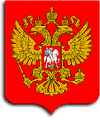 The Security Committee at the State Duma
The Security Committee at the State Duma
Official site
Chairman - Vladimir Vasilyev (fraction "Yedinaya Rossia")
The Committee on Security of State Duma is responsible for parliamentary control over the activities of the intelligence services. However, the role of the security committee has changed since the December 2003 State Duma elections.
Vladimir Vasilyev, former deputy minister of internal affairs, was appointed the chairman of the committee. Vladimir Vasilyev became known in October 2002, when as the Deputy Minister of internal affairs together with the deputy director the FSB Vladimir Pronichev, he led the operation on the release of hostages in the theatre on Dubrovka. Vasilyev officially stated at 8 am on the day of the assault, that officers had to start the operation because several hostages had attempted to run out and thus left him no other choice. Some opposition members of the State Duma tried to initiate a parliamentary investigation, but they had insufficient votes. Under Vasilyev, Committee on Security mostly lost its control functions: even anti-corruption commission, existed in this Committee, was disbanded. The oversight under secret services budget is very difficult because only main figures are open, the detailed charges to national security are hidden in secret appendices to Federal Budget. Since 2000 the number of open-published figures in secret services budget was being decreased.
Parliamentary investigations began in Russia only after the terrorist attack in Beslan (1-3 September of 2004). However, commission for Beslan arose only because of the fear of a predicted uprising of the population of North Ossetia, which could lead to the second war in the North-Caucasian region. On September 7, 2004 Vladimir Putin at the special press conference for foreign journalists, answering a question about the need to conduct an open investigation, stated that it would be sufficient to conduct an internal investigation into the tragedy in Beslan. Answering a question about a parliamentary investigation, he added, that this investigation could become a political show. So, at first Putin shadowed the idea of the creation of a commission like US Commission on 9/11.
True, no one at that moment warned the President about the mass meetings demanding the resignation of Dzasokhov, the President of North Ossetia, which passed in Vladikavkaz. Since Putin did not agree to remove Dzasokhov, it was necessary urgently to correct position. On September 10 it became known that Putin supported the idea of the creation of the commission of Federation Council on the investigation of the Beslan attack and that he would grant the commission access to all necessary information of law-enforcement agencies and the Attorney General's Office for its work. But the desire to limit investigation by the small circle of the senators controlled by Kremlin could not defuse the situation. On September 16 the speaker of the State Duma Boris Gryzlov stated that the State Duma would create its own Commission of Inquiry into the circumstances of terrorist attack in Beslan. On September 20 the parliamentary commission was formed. It consists of 11 senators and 10 deputies. Commission is headed by Alexander Torshin, vice-speaker of Federation Council – a party bureaucrat who smoothly passed from the apparatus of the Central Committee of the Communist Party of the Soviet Union.
Commission has presented its report in December 2006, mostly confirmed official version of Beslan siege and simply approved all changes in national antiterrorist system, suggesting nothing. The main conclusion is very simple – activity of operational staff in Beslan was correct, all mistakes and problems, founded by Commission, were fixed during reforms 2004-2006. Thus, the structural reforms in the secret services discussed above were achieved without taking into account the investigation.
In May 2008, Vladimir Vasiliev, the chairman of the Duma’s State Security Committee, admitted in interview to Agentura.Ru that there is no parliamentary oversight over the secret services in Russia.
